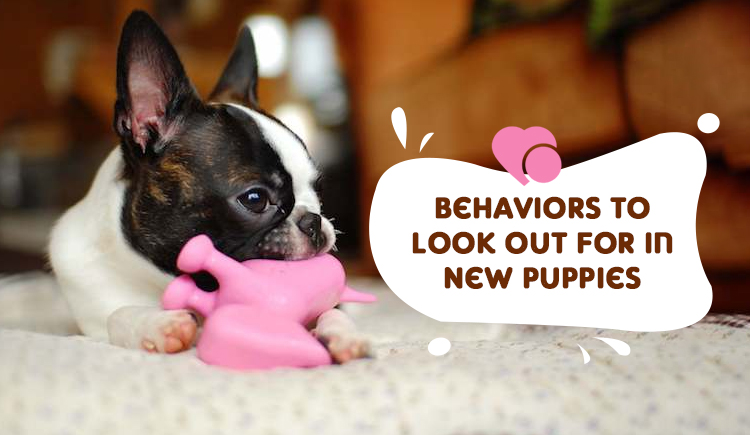
It is a big day for everyone in the family when a new member is brought home. Welcoming a new pup takes a lot of preparation beforehand, along with stocking up on pet food, treats, toys, and other supplies. While these preparations can certainly be exciting, you must also learn the language of your new puppy, in order to ease the transition. Otherwise, you may not exactly meet the needs of your puppy, and you would never want that.
Fortunately, there are certain behaviors that convey vital information about the moods or health of puppies, which may be helpful to you as a new puppy parent. Here are 7 new puppy behaviors that you should know about if you have decided to bring one home!
Chewing
Puppies often chew on things; this is their way of exploring new items, and it is also a normal behavior for teething pups. It helps them relieve the stress and pain of the teething process. Chewing or biting is a normal action for them, and you as a pet parent have to ensure that your belongings don’t have to be replaced every few days or that they don’t chew on something dangerous like electric cords or small toys that can cause a choking hazard.
Puppy-proofing the house at this stage seems like a smart choice; tie up loose cords, lock up your shoes, and put away jewelry and other small toys. Buying your pup chew toys will also help them through the process and reduce the damage to your household and personal items.
Jumping
Jumping puppies often look adorable, but it can get dangerous as they grow. Start using positive reinforcements to train your puppy so that eventually, when they grow to be large dogs, they will know that jumping on people might cause injuries. You can start by making sounds like ‘ouch’ so that they learn that this particular action is hurting my parent.
Sniffing
Dogs are pretty good at smelling different scents. Puppies sniff everything and learn to distinguish smells, so it wouldn’t be unusual to see your pup sniff. However, sometimes they sniff when they need to use the bathroom, and this might be an indicator for you to start potty training your pup immediately.
Additionally, with sniffing comes peeing; your new pup is not aware of social norms, so it is hard for them to understand that peeing on your carpet is not right. Such situations call for potty training, and it should be one of the first exercises you practice with your paw-some friend.
Eating everything
The advanced version of chewing is eating everything. Being curious and hungry can be a dangerous combination for the new pups, as they might ingest some toxic substance. It can be detrimental to their health to chew or swallow something they are not supposed to, so better be safe than sorry; keep an eye out for your pup! Eating random items can also be an indicator of nutrient deficiency, in such cases, it is best to feed your pup the best food that will replenish their nutrients.
[Also Read] 10 Different Sleeping Positions Of Dogs And What It Tells About Them
Barking
Barking is a behavior that brings out the protective side of your dog. It is completely normal for your pup to bark at strangers or be aggressive when you don’t give them much attention. This behavior can change into an issue if not given enough care, so with much affection and care, it is important to introduce your pup slowly to new friends and smoothly socialize with them. This is a friendly way to minimize their barking.
Yawning
A common indicator of being sleepy or tired is yawning or it can also specify hunger. It is also possible that repetitive yawning can be a sign of stress, fear, or something else. If you notice excessive yawning tend to your pup and make them comfortable in stressful situations.
Bottom Line
New puppies are still learning how to communicate. Their nipping, biting, barking, whining, peeing, or digging is a way for them to communicate and as pet parents; it is our responsibility to understand these cues. Pups are impressionable and will learn what you teach them; like human babies. This makes being a pet parent a huge responsibility; so before bringing home the furry baby think about everything carefully. You can also take help from a veterinarian to understand better and help their puppies live a comfortable and happy life.

